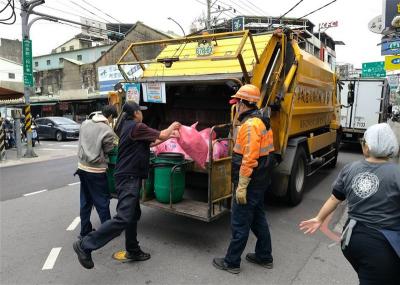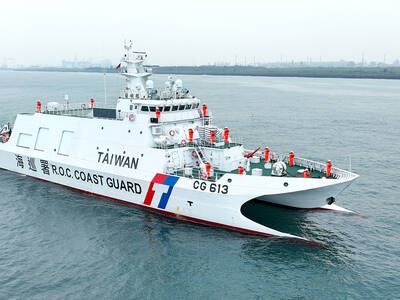Popular herbal remedy drinks Paolyta B (保力達B) and Sanyo Whisbih (維士比) are alcoholic beverages categorized as a non-prescription medication and are prohibited from being sold at convenience stores, betel nut stands or other business establishments without a drug company license, the Food and Drug Administration (FDA) said yesterday.
“The administration and local health departments inspected a total of 105 betel nut stands in Taipei City, Greater Taichung and Greater Kaohsiung last month, of which 14 were found illegally selling the herbal liquors without a permit,” FDA Northern Center section head Wu Ming-mei (吳明美) told a press conference in Taipei yesterday morning.
However, the national retailer violation rate concerning alcoholic herbal beverages sales dropped from 38 percent in a March inspection to 13 percent in the inspection conducted last month, Wu said.
The significant decrease indicates that the administration’s frequent impromptu inspections have helped deter such irregularities, which is punishable by a fine ranging from NT$30,000 to NT$150,000 as stipulated in Article 92 of the Pharmaceutical Affairs Act (藥事法), she added.
Wu said the herbal beverages are often consumed by construction site workers before or during work because they are believed to be effective in relieving fatigue.
“However, as such drinks contain an alcohol content of about 9 or 10 percent, which could impede the workers’ concentration during work, most of which involves operating heavy construction equipment, it therefore puts their safety at risk,” Wu said.
There have also been multiple cases in which blue-collar workers have been sentenced to several months in prison for driving under the influence after drinking the herbal drinks, she said.
“Consumers are advised to drink the herbal liquors no more than three times a day and less than 40 mililiters each time,” Wu said.
“Long-term or overconsumption of the alcohol-laced beverages would have the same detrimental effect on the liver as any other alcoholic drinks would,” Wu said.

The US House of Representatives yesterday passed the PROTECT Taiwan Act, which stipulates that Washington would exclude China from participating in major global financial organizations if its actions directly threaten Taiwan’s security. The bill, proposed by Republican US Representative Frank Lucas, passed with 395 votes in favor and two against. It stipulates that if China’s actions pose any threat to Taiwan’s security, economic or social systems, the US would, “to the maximum extent practicable,” exclude China from international financial institutions, including the G20, the Bank for International Settlements and the Financial Stability Board. The bill makes it clear that China

Garbage and recycling schedules are to vary from Saturday through Sunday next week over the Lunar New Year holiday period. The following collection information is from the governments of the six special municipalities. Taipei Regular service: Sunday to Monday next week. No service: Tuesday to Thursday next week. Extra service: Friday next week. Regular service resumes: Saturday next week. New Taipei City Extra service: Sunday. Adjusted collection time: Monday next week — garbage collection is to begin in the morning and end at 6pm. No service: Tuesday to Thursday next week. Regular service resumes: Friday next week. Note: Garbage can be dropped off at 70

Taiwan’s Li Yu-hsiang performs in the men’s singles figure skating short program at the Milano-Cortina Winter Olympics, in Milan, Italy, on Tuesday. Li finished 24th with a score of 72.41 to advance to Saturday’s free skate portion of the event. He is the first Taiwanese to qualify for the free skate of men’s singles figure skating at the Olympics since David Liu in 1992.

The Coast Guard Administration (CGA) yesterday held a ceremony marking the delivery of its 11th Anping-class offshore patrol vessel Lanyu (蘭嶼艦), saying it would boost Taiwan’s ability to respond to Beijing’s “gray zone” tactics. Ocean Affairs Council Deputy Minister Chang Chung-Lung (張忠龍) presided over the CGA event in the Port of Kaoshiung. Representatives of the National Security Council also attended the event. Designed for long-range and protracted patrol operations at sea, the Lanyu is a 65.4m-long and 14.8m-wide ship with a top speed of 44 knots (81.5kph) and a cruising range of 2,000 nautical miles (3704km). The vessel is equipped with a